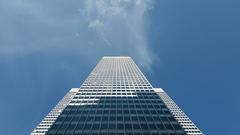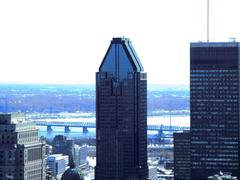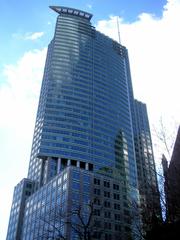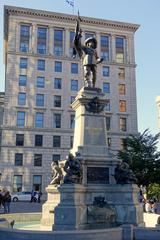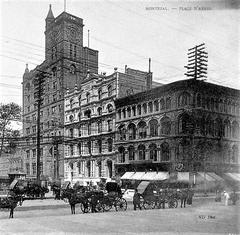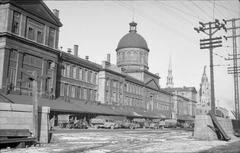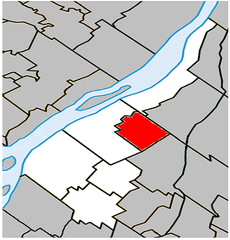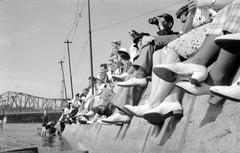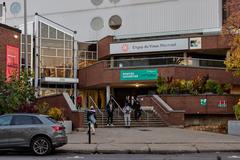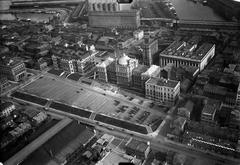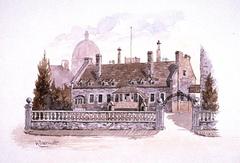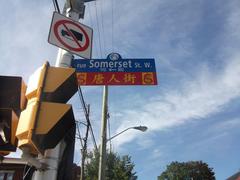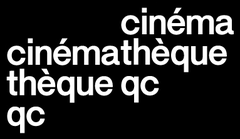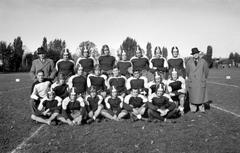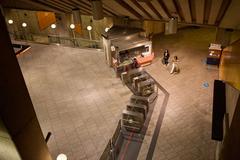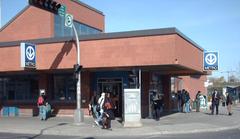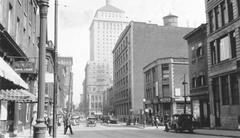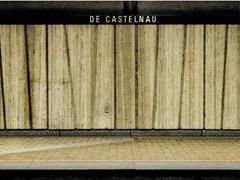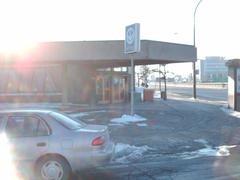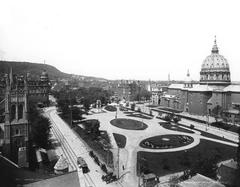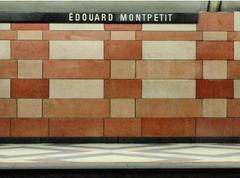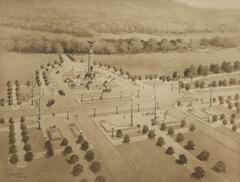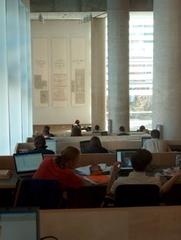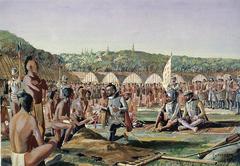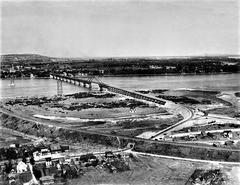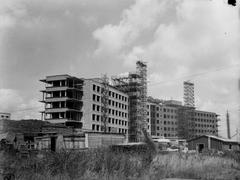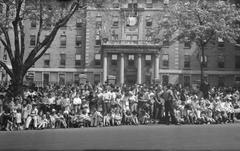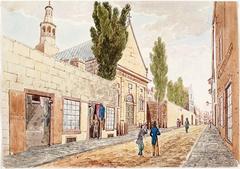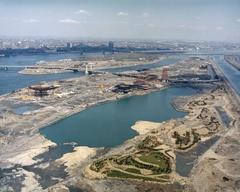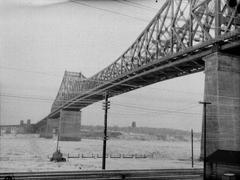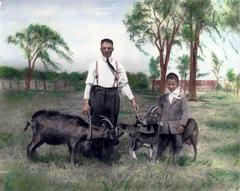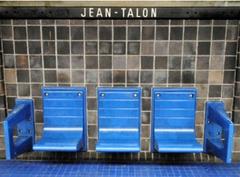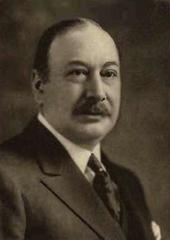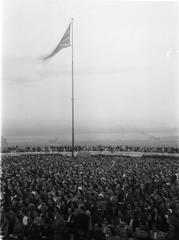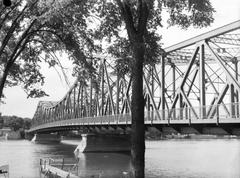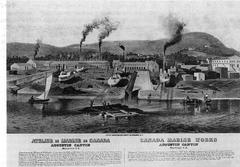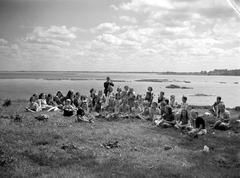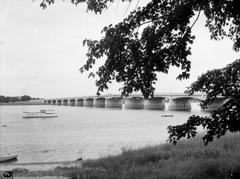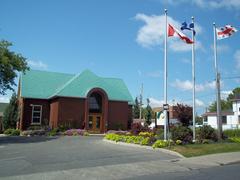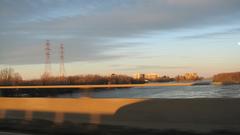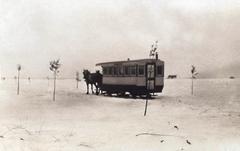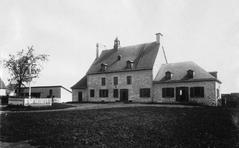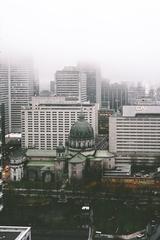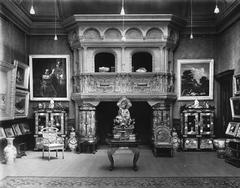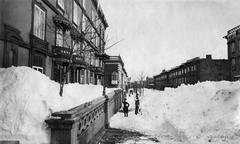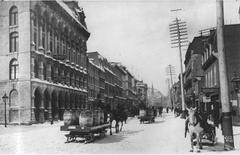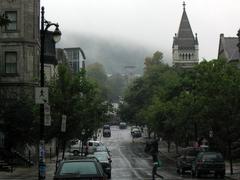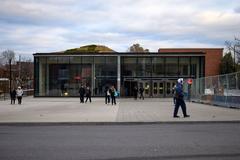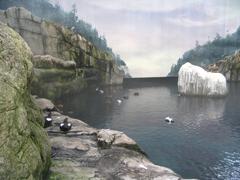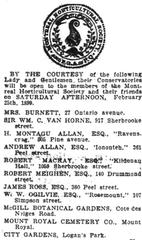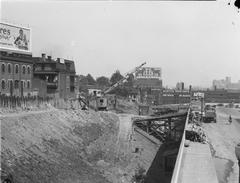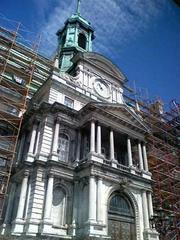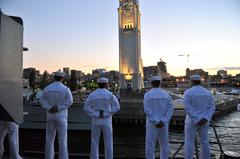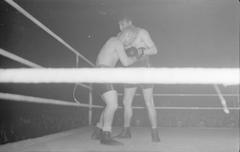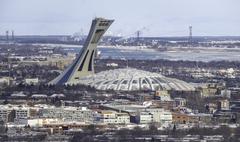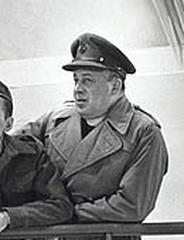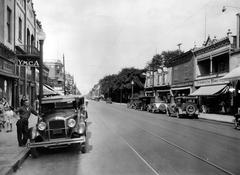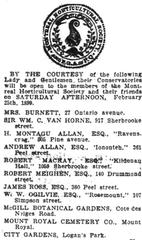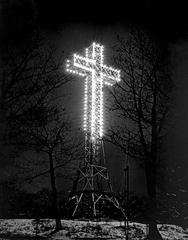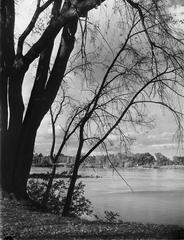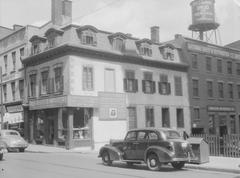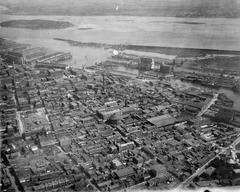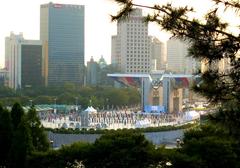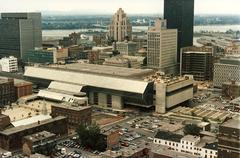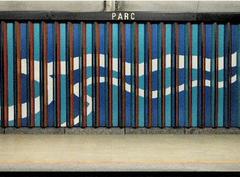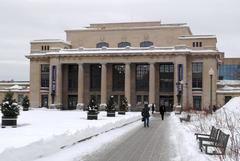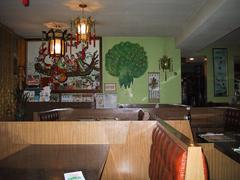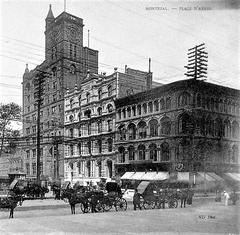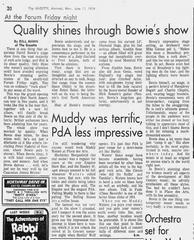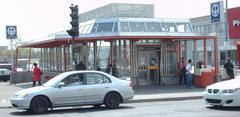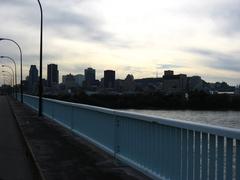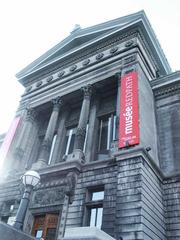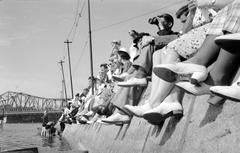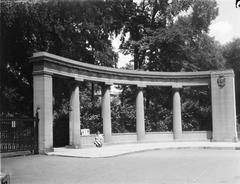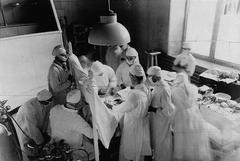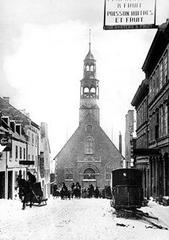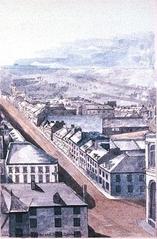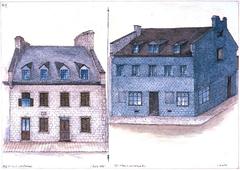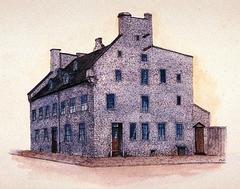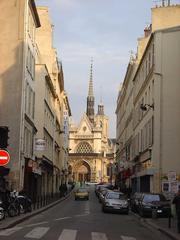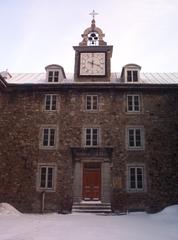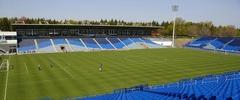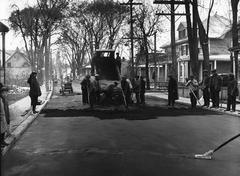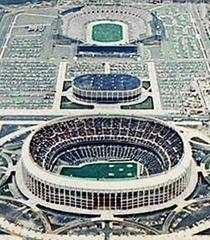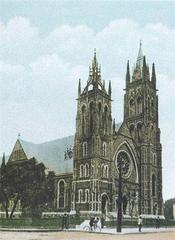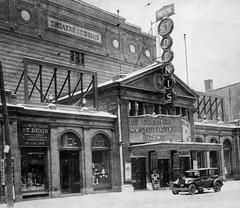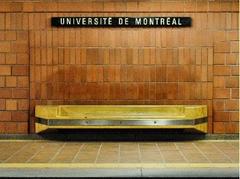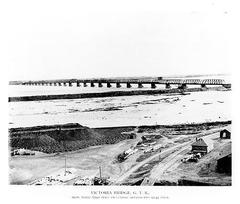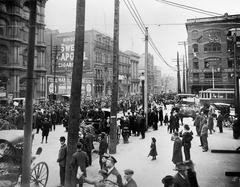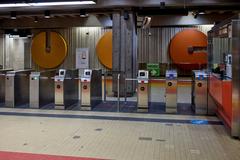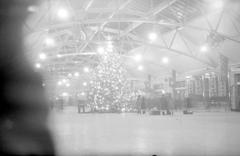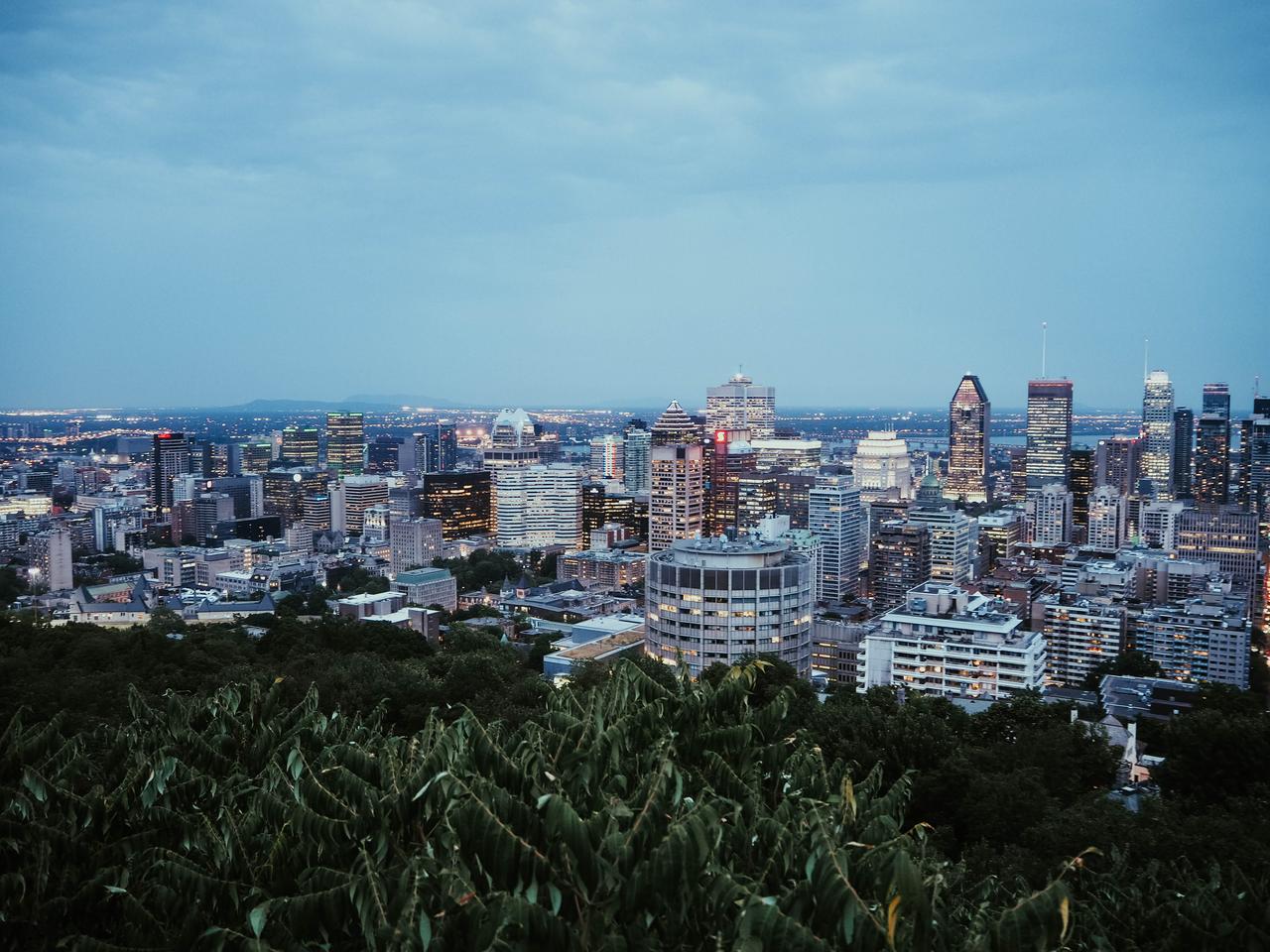
Comprehensive Guide to Visiting Montreal, Urban Agglomeration of Montreal, Canada
Date: 13/08/2024
Captivating Introduction
Imagine a city where ancient history and modern innovation coexist in perfect harmony. Picture strolling through streets where the aroma of fresh bagels mingles with the echoes of colonial history, and where the skyline is a blend of Gothic Revival churches and sleek skyscrapers. Welcome to Montreal, the urban agglomeration on the Island of Montreal, Canada. A city that started as a humble village of 1,500 St. Lawrence Iroquoians and evolved into a vibrant metropolis that hosted the 1976 Summer Olympics and Expo 67, one of the 20th century’s most successful World’s Fairs (TimeOut). Montreal is not just a city; it’s a living history book, a cultural melting pot, and an economic powerhouse all rolled into one. Whether you’re a history buff, a foodie, or an adventurer, Montreal promises an experience like no other. Ready to dive into this captivating city? Let’s explore the rich tapestry of Montreal’s history, significance, and the best tips to make your visit unforgettable.
Table of Contents
- History of Montreal
- Significance of Montreal
- Visitor Tips
- Welcome to Montreal: A City of Wonders
- Language and Communication
- Weather and Clothing: Montreal Through the Seasons
- Getting Around: Transportation Tips
- Where to Stay: Accommodation
- Savor the Flavors: Dining and Cuisine
- Festivals and Events: Year-Round Celebrations
- Must-See Sights: Sightseeing and Attractions
- Shop ‘Til You Drop: Shopping
- Safety First: Safety and Health
- Budget Wisely: Money and Budgeting
- Mind Your Manners: Cultural Etiquette
- Stay Connected: Connectivity and Internet
- Emergency Contacts
History of Montreal
Early Settlement and Indigenous Presence
Picture an island where lush forests meet the glistening waters of the Saint Lawrence River. Long before the skyscrapers and bustling streets, the St. Lawrence Iroquoians called this paradise home for about 8,000 years. Imagine the village of Hochelaga, perched on Mont Royal, bustling with around 1,500 people and 50 longhouses when French navigator Jacques Cartier stumbled upon it in 1535 (The Canadian Encyclopedia).
Founding of Ville-Marie
Fast forward to May 17, 1642: a daring band of French settlers, led by the intrepid Paul de Chomedey de Maisonneuve and the compassionate Jeanne Mance, established Ville-Marie on the Island of Montreal. Initially a missionary outpost, it quickly morphed into a fur trade hotspot. Picture these early settlers, fur hats and all, fending off Iroquois attacks until a peace treaty in 1701 (The Canadian Encyclopedia; Britannica).
British Conquest and Expansion
Cue 1760: British redcoats march into Ville-Marie, marking the dawn of a new era. With British rule came waves of British immigrants, transforming Montreal into a thriving fur trade center. Picture the bustling markets and warehouses of the North West Company (Wikipedia).
Incorporation and Industrial Growth
Incorporated in 1832, Montreal’s industrial boom was ignited by the opening of the Lachine Canal in 1825. Imagine ships gliding past the Lachine Rapids, leading to Montreal’s ascendancy as British North America’s largest city by 1860. The city continued to grow with the Canadian Pacific Railway’s headquarters (1880) and the Canadian National Railway (1919) (Wikipedia; Britannica).
The Golden Age and Economic Shifts
From 1861 to the Great Depression, Montreal enjoyed its Golden Age. Saint Jacques Street was the Wall Street of Canada, and the skyline sprouted skyscrapers like the Royal Bank of Canada’s head office, the tallest in the British Empire in 1928 (Wikipedia).
Post-War Prosperity and Challenges
Post-WWII, Montreal buzzed with industrial expansion, iconic architecture like Place Ville Marie, and the Metro system. Expo 67 was a highlight, but the 1976 Olympics left the city with a financial hangover that lasted until 2006 (Britannica).
Modern Developments and Cultural Significance
Today, Montreal thrives as a cultural and industrial hub. Often dubbed the second-largest French-speaking city after Paris (though some contest this), it is a mosaic of cultures, thanks to waves of immigrants (Britannica).
Visitor Tips for Exploring Montreal’s History
Old Montreal
Stroll through Old Montreal’s cobblestone streets and feel history beneath your feet. Marvel at the Notre Dame Basilica, Place Jacques Cartier, and the Old Port, where each stone whispers tales of yore (Roaming Historian).
Museums and Historical Sites
Dive deep into Montreal’s past at the Centre d’Histoire de Montréal and the Pointe-à-Callière Museum, where archaeological wonders await (Roaming Historian).
Architectural Tours
Montreal’s architectural tapestry is a blend of old and new. From Gothic Revival churches to sleek modern skyscrapers, guided tours reveal the city’s design secrets (Travel Notes and Things).
Festivals and Events
Experience Montreal’s vibrant spirit through its festivals: groove at the Montreal Jazz Festival, embrace winter at Igloofest, or get artsy at the MURAL Festival (Travel Notes and Things).
Significance of Montreal
Ever wondered where you can find the world’s largest underground city? Picture yourself wandering through a labyrinth of shops, cafes, and cultural hotspots all beneath the bustling streets of Montreal. Welcome to a place where history and modernity dance together in perfect harmony.
Historical Significance
Montreal, founded in 1642 by French settlers, is one of the oldest cities in North America. Imagine strolling through streets where the echoes of fur traders and colonial history still linger. Originally named “Ville-Marie,” Montreal evolved from a major trading post to a vibrant metropolis influencing Canada’s economic, cultural, and political landscape. The city’s historical significance is highlighted by its role in major events like the 1976 Summer Olympics, leaving behind iconic structures like the Olympic Stadium and the Montreal Tower, the tallest inclined tower in the world (Facts.net). Montreal also hosted Expo 67, the World’s Fair, considered one of the 20th century’s most successful World Expos (TimeOut).
Cultural Significance
Montreal is a cultural melting pot, known for its vibrant arts scene, diverse population, and numerous festivals. Stroll through streets where the aroma of fresh bagels mingles with the sounds of street musicians. Officially bilingual, with French predominating but English widely spoken, Montreal welcomes international travelers (Facts.net). Its multicultural heritage is reflected in its neighborhoods, cuisine, and cultural events. Often referred to as the “City of Festivals,” Montreal hosts events like the Montreal International Jazz Festival, Just for Laughs Comedy Festival, and the Montreal World Film Festival (Facts.net). These festivals attract millions annually, enriching the city’s cultural landscape.
Economic Significance
Montreal is a major economic hub with a diverse economy spanning aerospace, technology, finance, and tourism. Feel the pulse of innovation in the city’s numerous multinational corporations and research institutions. The Port of Montreal, one of the largest inland ports globally, underscores the city’s role in international trade. Its strategic location along the St. Lawrence River has historically cemented its status as a transportation and logistics hub (Nomadic Matt).
Architectural Significance
Montreal’s architecture is a delightful blend of old-world European charm and modern North American design. Marvel at the Gothic Revival style of the Notre-Dame Basilica, one of North America’s most visited monuments, drawing over 11 million visitors annually (Nomadasaurus). The city’s commitment to design and creativity has earned it the title of UNESCO City of Design, recognizing its efforts in promoting sustainable urban development and innovation in architecture, fashion, and the arts (Facts.net).
Educational Significance
Montreal boasts several prestigious educational institutions, including McGill University, Université de Montréal, and Concordia University. These institutions attract a global student population, contributing to the city’s reputation as a center for higher education and research. McGill University, in particular, is consistently ranked among the top universities worldwide, known for its research contributions in various fields (Nomadic Matt).
Recreational Significance
From outdoor adventures to cultural experiences, Montreal offers a wide range of recreational activities. Explore Mount Royal Park and Parc Jean-Drapeau, ideal for hiking, biking, and picnicking (Canadian Train Vacations). The Old Port of Montreal is a recreational hub, offering activities like biking, boat tours, and zip-lining. The area also hosts the Montreal Science Centre and the iconic Clock Tower Beach (Facts.net).
Culinary Significance
Montreal’s culinary scene is a testament to its multicultural heritage. Savor the city’s famous bagels, poutine, and smoked meat sandwiches. Wander through markets like Jean-Talon Market, where the aroma of fresh produce and artisanal goods fills the air (Facts.net). The city’s diverse culinary offerings are showcased in numerous restaurants, from fine dining to casual eateries. Montreal’s chef-owned restaurants are renowned for their creativity and use of local ingredients, making the city a top destination for food enthusiasts (Travel + Leisure).
Sports Significance
Montreal’s rich sports culture is spearheaded by hockey, with the Montreal Canadiens being one of the most successful NHL teams. The Canadiens’ games are a major attraction for locals and visitors alike (Facts.net). Beyond hockey, Montreal hosts major sporting events like the Canadian Grand Prix, a Formula One race held annually at the Circuit Gilles Villeneuve. The city also has a strong tradition of winter sports, with numerous ski resorts and ice skating rinks in and around the city (Facts.net).
Transportation Significance
Montreal’s well-developed public transportation system makes it easy to explore the city. The metro and bus network are efficient, providing access to major attractions and business districts. The city’s extensive bike lanes and popular bike-sharing system, BIXI, make it a bike-friendly destination (Travel + Leisure). The city’s infrastructure is complemented by major highways and the Montréal-Pierre Elliott Trudeau International Airport, connecting Montreal to global destinations (Nomadic Matt).
Environmental Significance
Montreal is committed to sustainability and environmental conservation. The city promotes green living through initiatives like expanding bike lanes, increasing green spaces, and encouraging public transportation use. The Biodome, featuring four distinct ecosystems, exemplifies Montreal’s dedication to environmental education and conservation (Nomadic Matt). Montreal’s sustainable urban development efforts have earned it the title of UNESCO City of Design, highlighting its commitment to creating an environmentally friendly urban environment (Facts.net).
Conclusion
Montreal’s significance is multifaceted, encompassing rich history, vibrant culture, a diverse economy, and a commitment to sustainability. The city’s unique blend of European charm and North American modernity captivates visitors worldwide. Whether exploring historic landmarks, enjoying culinary delights, or participating in numerous festivals, Montreal offers a memorable experience for all.
Frequently Asked Questions (FAQ)
Q: What is the best time to visit Montreal?
A: Montreal is vibrant year-round, but summer is ideal for festivals, while winter offers unique events like Igloofest.
Q: How do I navigate Montreal’s public transportation?
A: The city’s metro and bus systems are efficient. Consider getting a day pass for unlimited travel.
Q: Are there any local customs I should be aware of?
A: Montrealers appreciate politeness. A simple “Bonjour” goes a long way!
Q: What are must-try foods in Montreal?
A: Don’t miss the bagels, poutine, and smoked meat sandwiches. Visit local markets for fresh produce and artisanal goods.
Q: How do I get to Montreal?
A: Montreal is accessible via the Montréal-Pierre Elliott Trudeau International Airport, major highways, and train services.
Call to Action
Ready to explore Montreal? Download the Audiala app to uncover hidden gems, navigate the city like a local, and experience personalized itineraries. Let Audiala be your guide to the heart of Montreal!
Visitor Tips for Montreal
Welcome to Montreal: A City of Wonders
Did you know Montreal is home to the largest underground complex in the world, often dubbed ‘La Ville Souterraine’? This fascinating city is a blend of European charm and North American innovation, offering a unique experience in every corner. Let’s dive into your Montreal adventure!
Language and Communication
Montreal is a bilingual city, with both French and English widely spoken. While many residents are fluent in English, knowing a few basic French phrases can enhance your experience and show respect for the local culture. Common phrases like ‘Bonjour’ (Hello), ‘Merci’ (Thank you), and ‘S’il vous plaît’ (Please) can go a long way. For more complex interactions, consider using translation apps or carrying a pocket phrasebook. Local tip: Try your French at a café; Montrealers appreciate the effort!
Weather and Clothing: Montreal Through the Seasons
Montreal experiences four distinct seasons, each offering unique experiences:
- Summer (June to August): Warm and bustling with temperatures ranging from 54°F to 81°F. Dress in light, breathable clothing and bring sunscreen. This is the peak tourist season, perfect for exploring the city’s outdoor festivals.
- Fall (September to November): Cooler temperatures and breathtaking foliage. Ideal for outdoor activities like hiking on Mount Royal. Layer up!
- Winter (December to February): Cold, with temperatures often dropping below freezing. Layered clothing, thermal wear, and waterproof boots are essential. Experience the magic of Igloofest and Montreal en Lumière.
- Spring (March to May): Milder but unpredictable. Dressing in layers is advisable as the weather can change rapidly.
Getting Around: Transportation Tips
Montreal boasts an efficient public transportation system, including buses and the metro. The STM (Société de transport de Montréal) operates the metro, a convenient way to navigate the city. Consider purchasing an OPUS card for unlimited travel on public transit. For a more eco-friendly option, the BIXI bike-sharing program is available from April to November. Taxis and ride-sharing services like Uber are also readily available. Insider tip: Use the metro to avoid traffic and see the city like a local!
Where to Stay: Accommodation
Given the high demand during peak seasons, booking accommodations in advance is crucial. Montreal offers a range of options, from luxury hotels to budget-friendly hostels. Popular areas to stay include:
- Old Montreal: For its historic charm and cobblestone streets.
- Downtown: Proximity to major attractions and business centers.
- The Plateau: A bohemian vibe with quirky shops and cafes.
Websites like Booking.com and Airbnb offer a variety of choices to suit different budgets.
Savor the Flavors: Dining and Cuisine
Montreal is renowned for its culinary scene, offering everything from gourmet dining to street food. Must-try local dishes include poutine (fries topped with cheese curds and gravy), Montreal-style bagels, and smoked meat sandwiches. The city also boasts a vibrant food truck culture, especially during the summer months. For a unique dining experience, visit the Atwater Market for fresh produce and local delicacies. Pro tip: Don’t leave without trying a bagel from St-Viateur or Fairmount!
Festivals and Events: Year-Round Celebrations
Montreal is a city of festivals, with events happening year-round. Summer is particularly vibrant, featuring the Montreal Jazz Festival, Just for Laughs Comedy Festival, and the International Fireworks Competition. In August, don’t miss the Osheaga Music and Arts Festival and Fierté Montréal, the city’s Pride celebration. Winter highlights include the Igloofest and the Montreal en Lumière festival. Insider tip: Check local event calendars for spontaneous street performances and pop-up markets.
Must-See Sights: Sightseeing and Attractions
Montreal offers a plethora of attractions to suit all interests. History buffs will enjoy exploring Old Montreal, with its cobblestone streets and historic buildings. Don’t miss the Notre-Dame Basilica, a stunning example of Gothic Revival architecture. For panoramic views of the city, head to Mount Royal Park, designed by Frederick Law Olmsted. Art enthusiasts should visit the Montreal Museum of Fine Arts, while families will enjoy the Biodome and La Ronde amusement park. Local secret: Visit the hidden gardens in the Plateau for a peaceful retreat.
Shop ‘Til You Drop: Shopping
Montreal is a shopper’s paradise, offering everything from high-end boutiques to quirky local shops. Rue Ste-Catherine is the main shopping thoroughfare, lined with department stores and trendy shops. For a more unique shopping experience, visit the Jean-Talon Market in Little Italy, known for its fresh produce and local products. The Underground City is a network of interconnected shopping complexes, perfect for escaping the winter cold. Pro tip: Look for local artisans and unique souvenirs at craft markets.
Safety First: Safety and Health
Montreal is generally a safe city, but it’s always wise to take standard precautions. Keep an eye on your belongings, especially in crowded areas. The healthcare system in Canada is excellent, but it’s advisable to have travel insurance that covers medical expenses. Pharmacies are widely available, and many staff members speak English.
Budget Wisely: Money and Budgeting
The currency in Montreal is the Canadian Dollar (CAD). Credit and debit cards are widely accepted, but it’s a good idea to carry some cash for smaller establishments and markets. ATMs are plentiful, and currency exchange services are available at the airport and in the city. Montreal can be expensive, especially during peak tourist seasons, so budget accordingly. Look for free or low-cost activities, such as visiting parks and attending free festivals, to make the most of your trip without breaking the bank. Insider tip: Many museums offer free admission on certain days of the month.
Mind Your Manners: Cultural Etiquette
Montrealers are known for their friendliness and hospitality. When dining out, tipping is customary, with 15-20% of the total bill being standard. Public displays of affection are generally acceptable, but it’s always best to be mindful of your surroundings. Smoking is prohibited in public buildings and within nine meters of entrances, so look for designated smoking areas. Fun fact: Montrealers love to chat, so don’t be surprised if a friendly local strikes up a conversation!
Stay Connected: Connectivity and Internet
Montreal offers excellent connectivity, with free Wi-Fi available in many public spaces, including parks, libraries, and cafes. Most hotels and accommodations provide free Wi-Fi for guests. For those needing constant internet access, consider purchasing a local SIM card or a portable Wi-Fi device.
Emergency Contacts
In case of emergencies, dial 911 for police, fire, or medical assistance. The city’s hospitals and clinics are well-equipped to handle emergencies, and many staff members speak English. For non-emergency medical issues, walk-in clinics are available throughout the city. Local tip: Save the contact details of your nearest embassy or consulate just in case.
By keeping these tips in mind, visitors can ensure a smooth and enjoyable trip to Montreal, experiencing all the vibrant culture, history, and attractions the city has to offer. For more detailed information, visit the official tourism website. And don’t forget to download the Audiala app to uncover hidden gems and expert insights that will make your Montreal adventure truly unforgettable!
Call to Action
Montreal is a city that defies simple categorization. Its rich history, from its indigenous roots to its role in major historical events, provides a fascinating backdrop for its vibrant modern culture. As a UNESCO City of Design, it seamlessly blends old-world charm with cutting-edge innovation. The city’s multicultural heritage, diverse economy, and commitment to sustainability make it a unique and dynamic destination. Whether you’re exploring the cobblestone streets of Old Montreal, savoring the local culinary delights, or participating in one of the city’s numerous festivals, Montreal offers a unique experience for every visitor. So why wait? Download the Audiala app and let it be your guide to uncovering Montreal’s hidden gems and expert insights. With Audiala, you’ll navigate the city like a local, making your journey through Montreal not just a visit, but an unforgettable adventure.
References
- The Canadian Encyclopedia, 2023 https://www.thecanadianencyclopedia.ca/en/article/montreal
- The Canadian Encyclopedia, 2023 https://www.thecanadianencyclopedia.ca/en/collection/montreal-375-years-of-heritage-and-history
- Britannica, 2023 https://www.britannica.com/place/Montreal/History
- Wikipedia, 2023 https://en.wikipedia.org/wiki/History_of_Montreal
- Roaming Historian, 2015 https://roaminghistorian.com/2015/08/23/things-to-do-in-montreal-2/
- Travel Notes and Things, 2023 https://www.travelnotesandthings.com/7-things-you-should-know-before-traveling-to-montreal/
- Facts.net, 2023 https://facts.net/montreal-facts/
- TimeOut, 2023 https://www.timeout.com/montreal/things-to-do/montreal-attractions
- Nomadic Matt, 2023 https://www.nomadicmatt.com/travel-guides/canada-travel-tips/montreal/
- Nomadasaurus, 2023 https://www.nomadasaurus.com/things-to-do-in-montreal-canada/
- Canadian Train Vacations, 2023 https://canadiantrainvacations.com/blog/best-attractions-in-montreal
- Travel + Leisure, 2023 https://www.travelandleisure.com/montreal-canada-travel-guide-8629902
- STM, 2023 https://www.stm.info/en
- BIXI, 2023 https://montreal.bixi.com/
- Booking.com, 2023 https://www.booking.com/
- Airbnb, 2023 https://www.airbnb.com/
- MTL.org, 2023 https://www.mtl.org/en/what-to-do/shopping/atwater-market
- Montreal Jazz Festival, 2023 https://www.montrealjazzfest.com/en-CA
- Just for Laughs Comedy Festival, 2023 https://www.hahaha.com/en
- International Fireworks Competition, 2023 https://www.laronde.com/fr/larondefr/linternational-des-feux
- Osheaga Music and Arts Festival, 2023 https://www.osheaga.com/en
- Fierté Montréal, 2023 https://www.fiertemtl.com/en
- Igloofest, 2023 https://www.igloofest.ca/en
- Montreal en Lumière, 2023 https://www.montrealenlumiere.com/en-CA
- Espace pour la Vie, 2023 https://espacepourlavie.ca/en/biodome
- CN Traveler, 2023 https://www.cntraveler.com/gallery/best-things-to-do-in-montreal
- Montreal Museum of Fine Arts, 2023 https://www.mbam.qc.ca/en/
- La Ronde, 2023 https://www.laronde.com/fr/larondefr
- National Geographic, 2023 https://www.nationalgeographic.com/travel/article/montreal-quebec
- MTL.org, 2023 https://www.mtl.org/en


